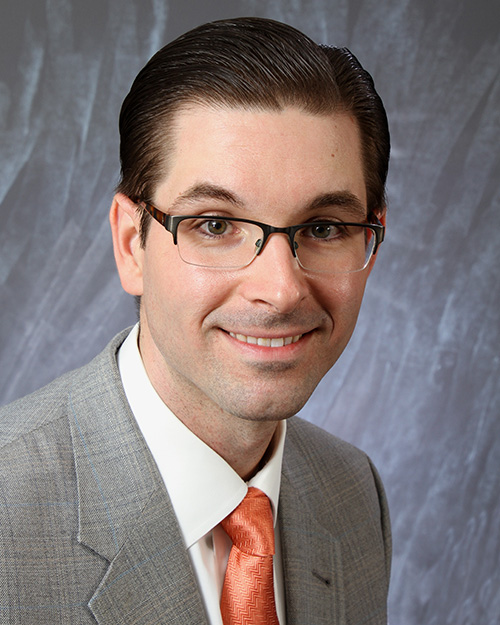

by David Flatt
Synopsis: While anxiety is symptomatic of a lack of trust in God, discipleship provides a proven path to contentment and peace of mind.
Therefore I say unto you, Take no thought for your life, what ye shall eat, or what ye shall drink; nor yet for your body, what ye shall put on. Is not the life more than meat, and the body than raiment? Behold the fowls of the air: for they sow not, neither do they reap, nor gather into barns; yet your heavenly Father feedeth them. Are ye not much better than they? Which of you by taking thought can add one cubit unto his stature? And why take ye thought for raiment? Consider the lilies of the field, how they grow; they toil not, neither do they spin: And yet I say unto you, That even Solomon in all his glory was not arrayed like one of these. Wherefore, if God so clothe the grass of the field, which to day is, and to morrow is cast into the oven, shall he not much more clothe you, O ye of little faith? Therefore take no thought, saying, What shall we eat? or, What shall we drink? or, Wherewithal shall we be clothed? (For after all these things do the Gentiles seek:) for your heavenly Father knoweth that ye have need of all these things. But seek ye first the kingdom of God, and his righteousness; and all these things shall be added unto you. Take therefore no thought for the morrow: for the morrow shall take thought for the things of itself. Sufficient unto the day is the evil thereof (Matt. 6:25–34)
In this section of the Sermon on the Mount, Jesus considers self-constructed barriers to the kingdom: self-righteousness, materialism, and anxiety. In certain respects, each of these barriers is connected, evidencing a basic lack of faith. Rather than believing and trusting in God, such people trust in themselves. They look inward for fulfillment rather than Godward. This is idolatry. This is why the self-righteous, materialistic, and anxious are not permitted into the kingdom.
Everyone can relate to anxiety. Regardless of time and place, worry is common to the human experience. Finding safety and security are primitive concerns to us. Since Adam and Eve were driven from the garden of Eden, humans have had to cope with the burdens of providing for themselves by the sweat of their brows. Life has never been easy.
We live in an anxious society. Mainly, we are overwhelmed by an uncertain future. There are many sources of uncertainty in our lives, most of which are financial. We worry about employment, affording the cost of living, having enough money in retirement, the rising cost of health care, etc. People of Jesus' day were equally concerned about these types of issues; albeit, in different ways. The point, however, is this: every generation will always be concerned about finding daily necessities and coping with an uncertain future.
Wisdom is found in being able to recognize that we will always have to concern ourselves with the necessities of life and an uncertain future. Therefore, we should not allow these concerns to consume us. Instead, we must learn how to manage and balance these issues—but, how?
As long as people have had to work and cope with an uncertain future, there have been those who offer advice on how to live a balanced, peaceful life. Today is no different. People seek advice from the likes of Oprah Winfrey, Dr. Phil, Joel Osteen, Suze Orman, and Dave Ramsey. While we may learn helpful information from these and others, Jesus' teaching is much more than simply self-help. Jesus teaches us how to deal with the burdens of life, not so that we can just have a good life or have more in this life. Jesus teaches us how to get to the kingdom.
We cannot make the burdens of this life our foremost concern. This is self-destructive. For example, the uncertain future over which we agonize quickly becomes our present worry. Before we know it, our present becomes the past—the worrisome cycle of life repeats over and over again. Solomon described this exhausting, unfulfilling cycle of life:
What does man gain by all the toil at which he toils under the sun? A generation goes, and a generation comes, but the earth remains forever. The sun rises, and the sun goes down, and hastens to the place where it rises. The wind blows to the south and goes around to the north; around and around goes the wind, and on its circuits the wind returns. All streams run to the sea, but the sea is not full; to the place where the streams flow, there they flow again. All things are full of weariness; a man cannot utter it; the eye is not satisfied with seeing, nor the ear filled with hearing. What has been is what will be, and what has been done is what will be done, and there is nothing new under the sun (Eccl. 1:3-9).
Being consumed by the cares of life is unfulfilling and destructive. Jesus shows us a better way to live. He instructs us to make God's kingdom and His righteousness the foremost goal of our lives. Both the kingdom and the righteousness of God are found through faith in the Teacher of this most transformative sermon. The apostle Paul would later explain how faith in the Messiah is the law of righteousness (Rom. 10:1-4).
The problem of anxiety can be easily identified in our lives. Most quickly acknowledge the pressures of life weighing heavily upon them, but what can be done to ease those pressures? What can be done to begin replacing worry with trust? Consider the following suggestions.
Disciples deal with anxiety by developing greater trust in God. Belief in what God accomplished through the Messiah leads us to trust God. This is what Jesus is teaching us in this part of His sermon. Instead of relying on our abilities to provide for an uncertain tomorrow, we must trust God today.
When discussing this section of Jesus' sermon, something is always said about priorities. Jesus did not just teach to seek the kingdom but to seek the kingdom first. However, what does this mean in the daily grind of life? What do we value most in our lives? How we spend our time and money usually is an indication as to what is most important to us. Make a list of your goals. What are you working toward accomplishing? After making a list, ask yourself:
After making a list of goals, decide which ones can be eliminated. Are my current priorities a help or hindrance to getting to the kingdom? Are my current priorities a help or a hindrance in reflecting the glory of God in my life?
Getting to the kingdom and reflecting God's glory demands sacrifice—a concept that is nearly lost in our society. We are told we can have it all; yet, this lie only contributes to our anxiety. Some painful decisions may be in order. To seek the kingdom first in our lives, we must make better use of our time and resources. We are going to have to make wiser decisions regarding the impact that our values and goals will have on our pursuit of the kingdom.
We often struggle to find the humility to accept help from others. We should stop thinking we have to do everything ourselves. Life is long and hard. As such, God never intended for us to bear the burdens of life alone. Adam was given Eve, a helper suitable for his needs. God gives citizens of the kingdom the Messiah, the Spirit, and also each other—to provide aid and support on the winding road of life (Matt. 11:28-30; Rom. 8:26-27; Gal. 6:2).
As previously discussed, prayer helps cultivate dependency on God. Rather than presumptuously thinking we can do things on our own, we are to look to God for help. The Bible says, "Let us then with confidence draw near to the throne of grace, that we may receive mercy and find grace to help in time of need" (Heb. 4:16). An old familiar song says, "O what peace we often forfeit; O what needless pain we bear; All because we do not carry everything to God in prayer."
In this text, Jesus reminds His audience of God's grace. God takes care of birds; certainly, He will take care of His children. When we look inwardly and rely upon ourselves, we forget that the blessings we enjoy are the result of God's grace and goodness. Yes, we have to be responsible and care for ourselves and our families; however, all we have is the result of God's grace being poured into our lives.
Remembering God's grace gives us a better perspective in our lives. A verse of the song, "Amazing Grace," reads, "Through many dangers, toils, and snares I have already come; 'Twas grace that brought us safe thus far and grace will lead us home." Recalling how God's grace has been brought into our lives in the past will help temper how we cope with present concerns and face an uncertain future.
Those first to come to the kingdom had many reasons to be filled with anxiety: poverty, discrimination, and oppression, to name a few. Paul would remind saints of the fundamental principles of the faith. He wrote,
Rejoice in the Lord always; again I will say, rejoice. Let your reasonableness be known to everyone. The Lord is at hand; do not be anxious about anything, but in everything by prayer and supplication with thanksgiving let your requests be made known to God. And the peace of God, which surpasses all understanding, will guard your hearts and your minds in Christ Jesus (Phil. 4:4-7).
Let us awaken to the dangerous realities that our self-righteous, materialistic culture poses to faith. The self-righteousness and materialism of our society are fueled by anxiety. The fear of not measuring up to the superficial standards of success drives ambition and consumption. Jesus frequently warned how the cares of this world and the deception of riches would put a stranglehold on faith (Matt. 13:22).
Therefore, we need to reevaluate our lives. We need to take the steps of faith explained by Jesus to guide us to the kingdom. Once arriving at the kingdom by faith, we must continue to trust and rely on the King in how we live in this world. If we are not thoughtful and deliberate in how we live, we will be swept away from the kingdom by the world.
Author Bio: David and his family have labored with the Thayer Street congregation in Akron, Ohio since 2008. The church website is thayerstreetcoc.org. He can be reached at dflatt85@yahoo.com.
